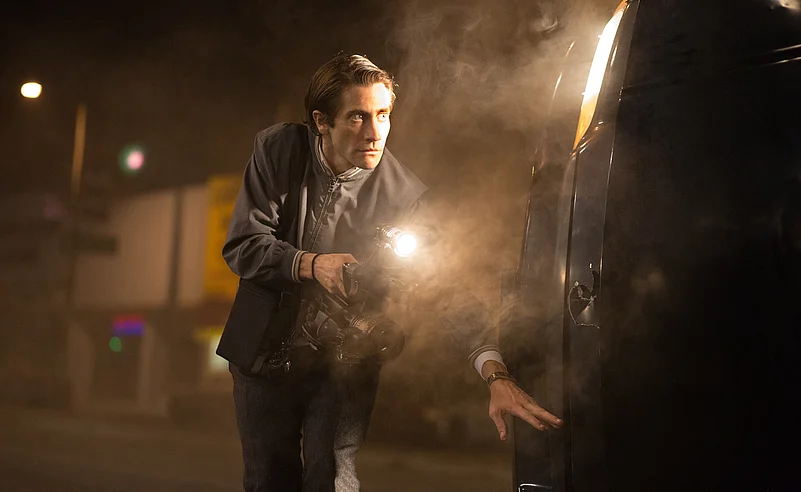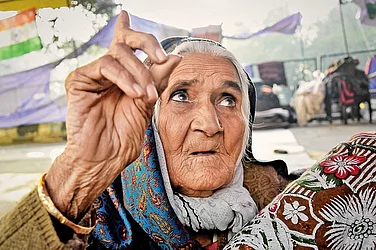“The best and clearest way that I can phrase it to you, Lou, to capture the spirit of what we air, is think of our newscast as a screaming woman running down the street with her throat cut.” — Nina Romina (Rene Russo)
The Netherworld Of News In Nightcrawler
Nightcrawler is as relevant today, as it was a decade ago at the time of its release, symptomatic of the age of disinformation that we live in.

Lou (Jake Gyllenhaal) and Rick (Riz Ahmed) whizz to a car accident site when they hear an update on the police radio. Upon reaching, Lou realises that they have beaten the police to the crash. A bystander, frantically talking to 911, shouts at Lou when he tries to pester him for a quote. Lou moves towards the crashed car and notices the injured man lying on the road. He runs to a side and starts filming. But something isn’t right. He runs back and drags the unconscious victim by his legs out of the darkness and in front of the car’s headlights. The body is illuminated in all its bloodiness. As an exhilarating soundtrack builds up, Lou is practically giddy with excitement. The perfect frame of the perfect victim is now captured.
This scene encapsulates a defining moment of Lou Bloom’s career as a crime news stringer in Nightcrawler. Directed by Dan Gilroy, the film completes a decade since its release on October 31. Yet, it is as relevant today, as it was in 2014— symptomatic of the age of disinformation that we live in.
Nightcrawler is an incisive take on the abyss that journalism has become in the contemporary times. News—once meant to provide information on the happenings around the world—has turned into a reality TV show. Right from the start, the film establishes the mass addiction to the theatre of the macabre. Through mazes of transmission cables, lattice towers and satellite dishes, Nightcrawler foregrounds the architecture of dissemination through which the urban citizen now experiences the city.

Gilroy dissects the perverse aesthetics of modern-day news production in this psychological thriller. Minor transgressions for a good shot of the crime scene transition smoothly into orchestrating a crime scene for the benefit of the camera. The process of both procuring and presenting this ‘news’ is clinical. Sensitivity is sacrificed at the altar of sensationalism— the trigger warnings are but a pretext for emphasis on the graphic visuals.
Nightcrawler highlights how issues are sold and socio-political discourse is generated among people through contemporary journalistic practices. When a colleague points out how an early morning telecast of a gunshot victim’s footage maybe excessive while people are eating breakfast, Nina retorts that people will discuss it at work. Gory murders and violent break-ins make the audience believe that a crime wave is rising, even when factual statistics may indicate a fall. We take whatever we are told as the ‘truth’, because in Lou’s words, “On TV, it looks so real!”
The queasiness that we feel as spectators comes from the uncomfortable identification with the audience that is hooked to such material. We want to look away but can’t. Even with the knowledge that the people in the news could easily be us, we’re swayed by an odd satisfaction mixed with the sheer horror. The paradox of being desensitised to experience heightened sensations is haunting.
What is spectacular about the film is its commentary on the US style of capitalism. While Lou Bloom is symbolic of the extremes to which citizens are driven due to joblessness, Rick is the face of the desperation that plagues the marginalised and homeless. Nina, on the other hand, stands for the exploitative class that reinforces existent social and racial disparities to flourish in the teetering economy.
Above all, the brilliance of Nightcrawler lies in the fundamental question that it leaves in its wake— Who is the real ‘psychopath’? Lou, who gets his partner killed for disobeying him, and then films his death for news? Nina, who is nearly orgasmic after Lou brings her the footage of a police shootout and chase? Or us, the audience, who ravenously consume this ‘news’?
















